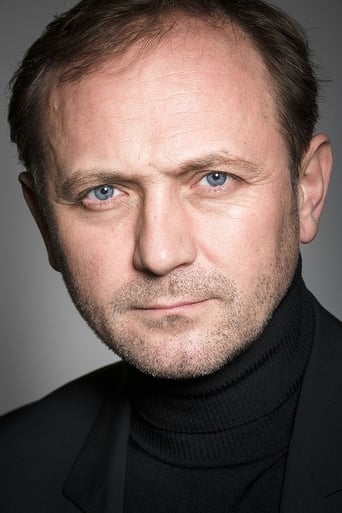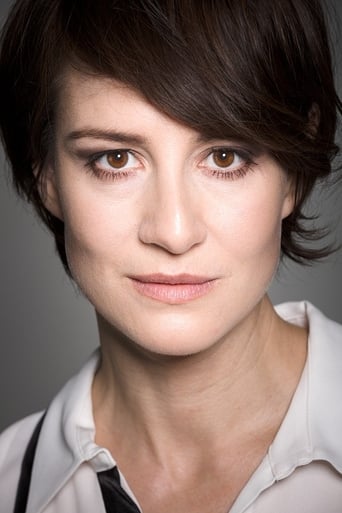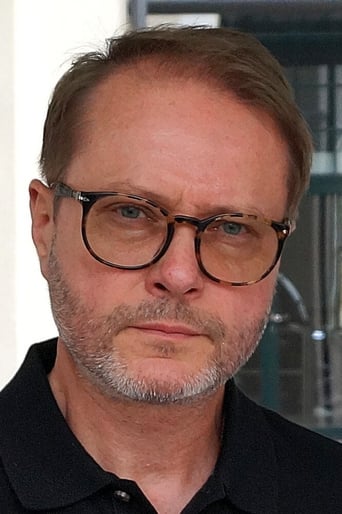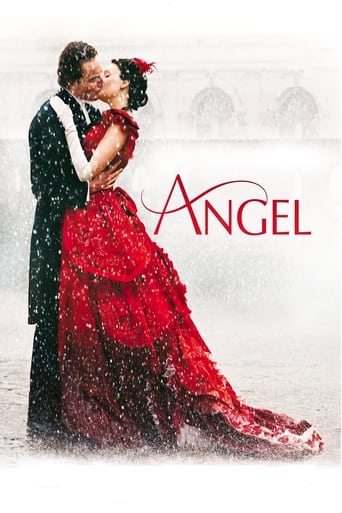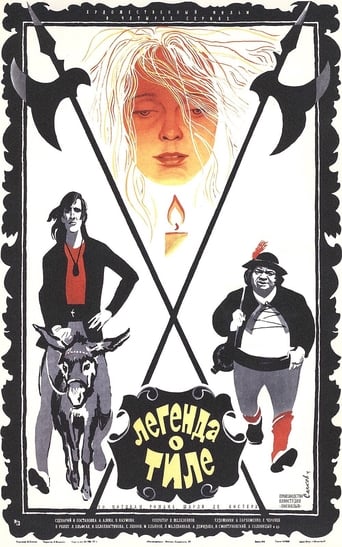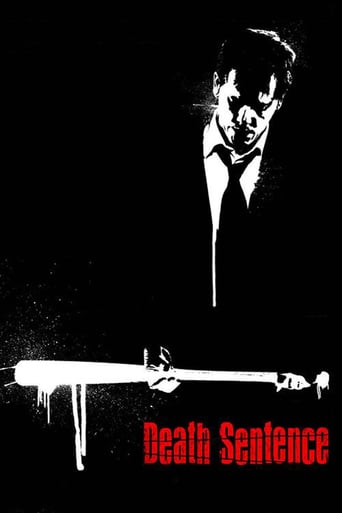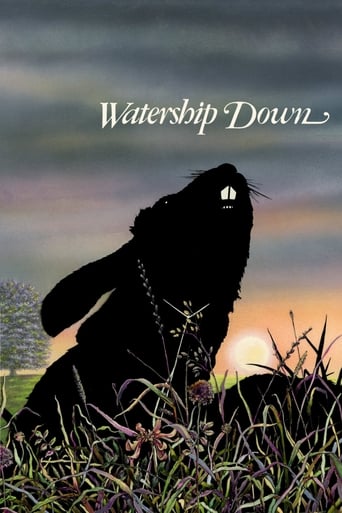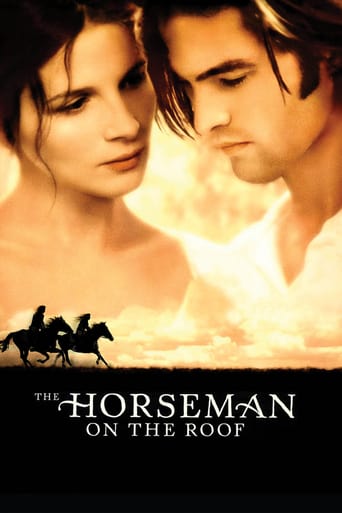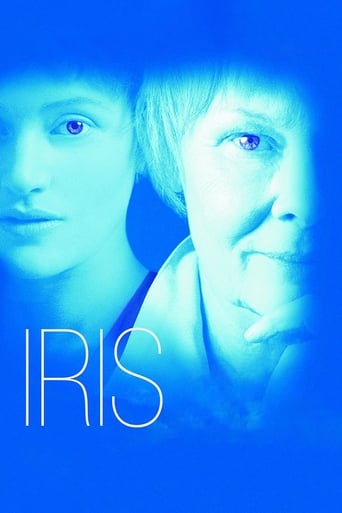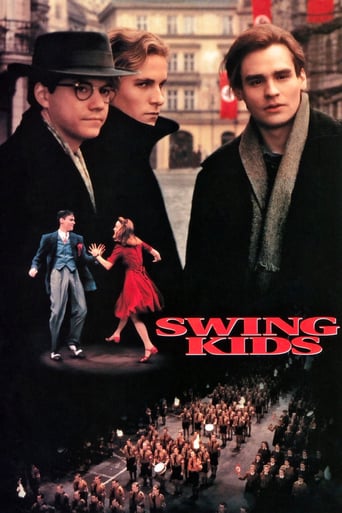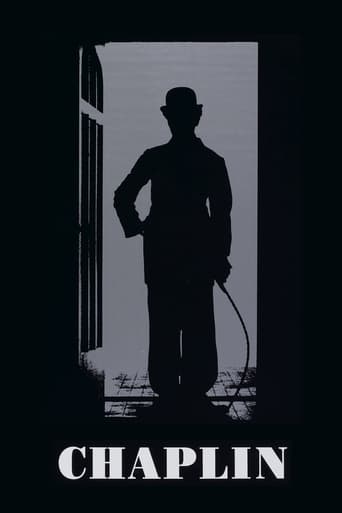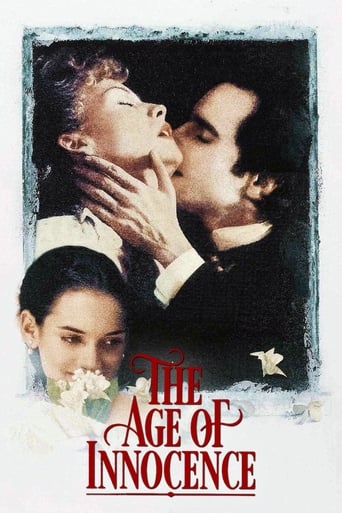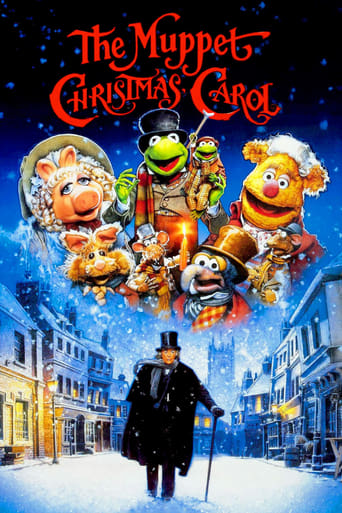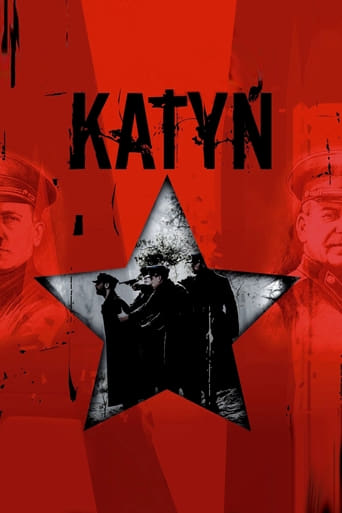

Katyn (2007)
On September 1st, 1939, Nazi Germany invades Poland, unleashing World War II. On September 17th, the Soviet Red Army crosses the border. The Polish army, unable to fight on two fronts, is defeated. Thousands of Polish men, both military and government officials, are captured by the invaders. Their fate will only be known several years later.
Watch Trailer
Cast


Similar titles
Reviews
Simply A Masterpiece
Good concept, poorly executed.
There are moments in this movie where the great movie it could've been peek out... They're fleeting, here, but they're worth savoring, and they happen often enough to make it worth your while.
The movie really just wants to entertain people.
Based on a true incident that took place in the Katyn forest during World War 2 where Russian army slaughtered 20,000 Polish prisoners of war and then put the blame of the massacre on Nazi Germany, Katyn tells its harrowing tale through the eyes of Polish officers' wives, mothers, sisters & daughters, but on an overall scale, this film really failed to live up to my expectations. The depiction of Russians & Germans and their blame game is captured very well and there are some tense moments also which it is able to deliver but this motion picture kind of loses itself in the middle in which the plot feels highly fragmented but then in the final moments, Katyn makes an impressive return to deliver a brutal, powerful & haunting final punch to bow out with some respect.
To some this may be a war movie. To others it may be an expose of the malign caprices of brutal authoritarian regimes. To many of us, I suspect, it is the above and much, much more.Some people seem to have found this film to be slow or even boring. Perhaps, they expected battle scenes and non-stop violence. I myself love to watch a good, gung-ho war movie, but I also enjoy a film which can portray the real impact of war on ordinary people as well as those who actually go into combat.This work shows the very real emotional and physical trauma experienced by those caught up in such a horrific situation. The stress of not knowing what has happened to a loved one. The bitter release of learning of their death. And the heartless manoeuvres of Nazis and Stalinists cynically plotting to gain advantage for their regimes no matter the cost in hypocrisy to their own warped ideology, never mind the sheer sociopathic insanity of their actions. The mechanical nature of the murders themselves is wonderfully and horribly portrayed, and is set into stark relief by juxtaposition with the real humanity displayed by the victims and their relatives elsewhere in the piece.
I was hoping this movie would work because it is about an important event in Poland during World War II. Over twenty thousand Polish soldiers were killed by the Russians prior to the German invasion in 1941. The Germans found the massacre site and 'told the truth'. Unfortunately (for obvious reasons) they were not believed (or many people were sceptical). The Russians during, and more forcefully after the war, blamed the Germans. Eventually the Russians were proved to have committed this massacre – such were the ways of Stalinist Russia.This film starts off very well with a woman (and her young daughter) trying to locate her husband. She is literally caught between Russian and German forces in 1939. She eventually learns that her husband is being held by the Russians. We feel her confusion and empathize with her plight. She becomes trapped in Russian occupied Poland. It is here that the film slowly starts to unravel (somewhat). She is staying with a Russian soldier who is also hiding another woman with her daughter. Other Russian soldiers come and take this other woman and her daughter but for whatever reason the sympathetic soldier decides to protect her. In the next scene she is now in German occupied Poland in Krakow – that seemed a questionable transition. We are then introduced to another woman – a wife of a General who is also being held prisoner by the Russians. Once more we feel their confusion and their faint hopes as they wait forlornly for news of their husbands. By wars end (mid-way through the film) a new group of characters are introduced. One is killed off after only a few scenes. Scenes introducing new sub-plots and characters shift so rapidly it becomes difficult to feel coherence.The ending is compelling and gruesome. But unfortunately there is no final wrap-up. It would have been nice to know when the world came to really know the official truth of Katyn – it was still a controversy in the mid-1970's. Did the Soviet regime ever acknowledge its' crimes?Obviously this movie was only possible after the end of the Soviet occupation of Poland in 1990 and to some extent,that in itself, makes it worthwhile to watch.
In 1940 about 22,000 Polish military officers, doctors, lawyers, and educators were brutally murdered by the Soviet Army in a span of about 28 days. This much I was aware of prior to watching Katyn. What I didn't understand about this event was the effect it had on the Polish people. These people were fully aware of the mass execution, but were forbidden to acknowledge that it was the Soviets who were responsible.I remember reading about the massacre at Katyn a few months ago and thinking to myself how it is possible for human beings to do this to each other. I remember details given about the Chief Soviet executioner who personally executed 7,000 of these victims of circumstance. These men were deprived of the opportunity to die glorious deaths on the battlefield in the service of country. Instead they were slaughtered like animals in a basement and carted off to mass graves.In the film, "Katyn", we get an accurate retelling of the story from the eyes of the soldiers themselves and the families who mourned them. As you can imagine, the story goes far beyond the event itself. We learn how families were torn apart, and how they were forced to deal with their grief with reservations about the truth. It illustrates how important the right of free speech can be, and also says a lot about the carelessness some people have for the value of human life.Men were selected for execution simply because of their professions, having done nothing to deserve such a punishment. There is one particular scene that is absolutely painful to watch in which men recite the Lord's Prayer moments before death.For Poles, this is a key event in the history of their country. For others it is a lesson in human dignity. I would recommend it to anyone. 9/10


